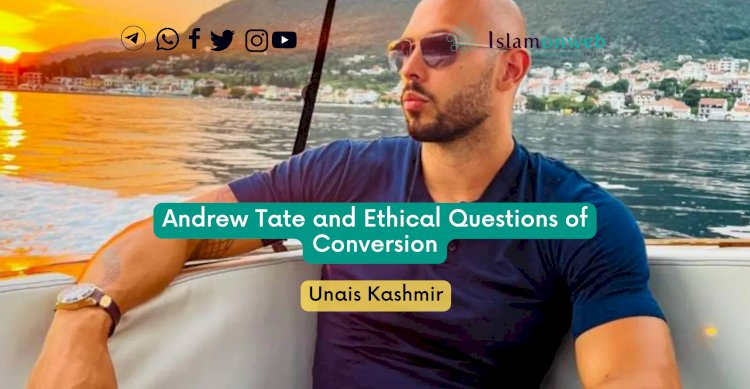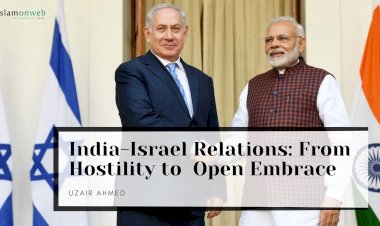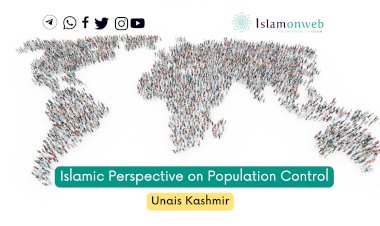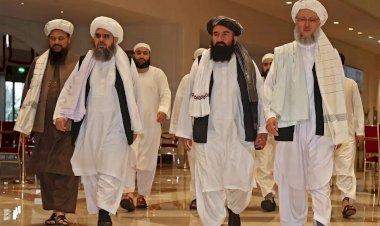Andrew Tate and Ethical Questions of Conversion
For about one month, Andrew Tate, a famous social media influencer and former British-American kickboxer has been in the headlines since he was detained in Romania on charges of being part of an organized crime group, human trafficking, and rape. He has kept his own controversial presence on social media, making misogynistic statements under the shade of ‘converted Muslim’. Tate, with millions of followers on social media, has been found using the media as a tool to disguise hatred and violence. His recent embrace of Islam, his popularity among online Muslim preachers, and his popularization of the Red Pill culture among Muslim youth by misrepresenting Islam deserve critical analysis.
Andrew Tate is an active social media figure famous for making hateful and violent comments about women. After facing widespread criticism, he strengthened his influence in another way by proselytizing Islam to cement his claims. Within a short span of time, Tate, a self-proclaimed follower of Islamic teachings, has been invited to numerous online Muslim preachers' events. Subsequently, he started using Islamic teachings and gender-specific affairs in particular as justification for his hateful statements against women that had come before him and to spread toxic masculinity among Muslim youth.
Despite this, Islamic Da'wa activists and speakers like Qatar native and speaker Abdul Aziz Ansari and famous Muslim philosopher and debater Muhammad Hijab have dismissed his statements as mere unintentional lapses by a prominent figure studying Islam, ignoring his past actions of blaspheming Islam and without realizing the grave dangers of such propaganda as this paved the way for him to gain uncritical support.[i]
Tate's statements about Islam were not limited to hate propaganda against women. Instead, he tried his best to express his exclusive ideas on several fundamental questions regarding Islam. For example, Tate claimed that ISIS were true Muslims because they do precisely what the divine scriptures say as it reads as he says: "Kill all non-Muslims, behead and set them on fire." Although he later regretted this statement, he never retracted or apologized for his previous statements as a social media influencer.
Sylvia Chan-Malik, an associate professor at Rutgers University who studies the lives of U.S. Muslim women and the prevalence of anti-Muslim racism, assesses Tate's influence, saying that many men are often quick to react defensively when labels such as feminism are asserted. Because of this, she says it is natural for Western Muslim men to feel attracted to Tate. Moreover, talking about the support he has received, she adds that in the current worldly scenario, the voices that are being raised strongly and convincingly, although an organized lie, be it by scholars, or thinkers, are influencing people a lot.[ii]
Joseph Lombard, an associate professor in the field of Quranic studies at Hamad Bin Khalifa University in Doha, responded to the matter on Twitter: "Many Muslim men are trying to impose innocence on Tate by stating he has 'husn al dan' (optimistic opinion) and that Islam wipes away all of a person's past sins after conversion. With such justifications, they unfairly condone the violent misogyny, Fisq (evil) and Fasad [misdeeds] promoted by Tate's social media platforms.”[iii]
Bilal Ware, a professor at the University of California's history department, posted a series of Instagram posts criticizing the podcasts and YouTube videos where Tate was hosted by Da'wah activists. He put it this way: The Muslim Manosphere has become a haven for a group of weak men who oppress the women.[iv]
Sheikh Ismail Qamdar, head of research at the Yaqeen Institute of Islamic Research in the United States, who has conducted a study on "Muslim youth and masculinity" in response to the question how youth are influenced by toxic individuals like Tate, who propagates anti-Muslim ideas clearly and uses Islam as a means to gain influence among the Muslim youth. He goes on to state that the majority of Muslim youth believe that the issues of 'feminism and masculinity' are not properly addressed by Islam, which is false hypothesis.[v]
Qamdar adds that because many men are disillusioned with “feminist ideas” when people outside the Muslim community discuss these issues, they turn to them without any pure conviction. Through this, he says, the young Muslim generation is unknowingly getting caught in the cycle of extreme ideas and losing sympathy with the religious leaders.
For sure, the influence of the individuals like Andrew Tate among Muslims forces many young Muslims, including Da'wah activists, religious scholars, and young Muslims, to seriously question many prejudices that make up their religious identity and the far-reaching consequences it can have.
Tate's reputation in the public eye has suffered from his extreme and disdainful personality. His reputation for rudeness and misogyny will consequently make it more difficult for him to defend himself against the accusations he is making because they are so similar to the image he has presented online.
Tate may have a sizable fan base, but it does not mean that he is someone you should respect and follow. People should re-evaluate whom they are following and referring to as their "role model" in light of Tate's latest claims. Fans should conduct their own credible and in-context research as they draw their own conclusions about him. “These are the ones who trade the Hereafter for the life of this world. So their punishment will not be reduced, nor will they be helped.”(Quran 2:86
[i] https://muslimcentral.com/mohammed-hijab-on-andrew-tate-allegations-and-criticism/
[ii] https://www.middleeasteye.net/news/why-do-so-many-western-muslim-men-love-andrew-tate
[iii] https://www.aljazeera.com/amp/opinions/2022/11/22/andrew-tate-red-pill-muslim#amp_ct=1683605649470&_tf=From%20%251%24s&aoh=16836056388705&referrer=https%3A%2F%2Fwww.google.com
[iv] https://www.aljazeera.com/opinions/2022/11/22/andrew-tate-red-pill-muslim
[v] https://muslimcentral.com/ismail-kamdar-my-thoughts-on-andrew-tate-converting/
About the author
Unais Kashmir is a PG Research Scholar in Islamic Thoughts and Modern Trends in Islamic Studies at Darul Huda Islamic University, Chemmad. He currently works as a freelance content writer for 'The Muslim Vibe', an online academic journal based in California, USA.
Disclaimer
The views expressed in this article are the author’s own and do not necessarily mirror Islamonweb’s editorial stance.
























Leave A Comment